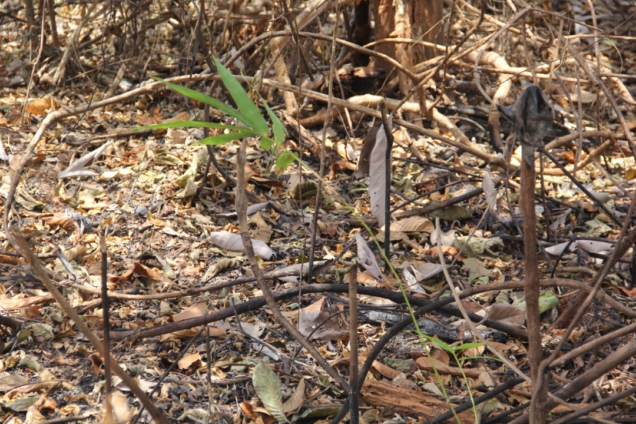Agric experts are advocating the adoption of climate change friendly technologies to ensure an all year round sustainable crop production in Ghana.
Farmers in Ghana are grappling with low crop yield owing to unpredictable weather patterns and poor soil quality.
Consumers in general are having to pay astronomical prices for foodstuff on the markets in the wake current economic crisis.
The situation, they feel, could have been prevented if the country was able to produce enough to feed the citizenry.
Those in the agriculture value chain are attributing the challenge to climate change impact.
Speaking at an EU-Ghana programme on how to adapt agriculture to climate change in Ghana, an Agriculture Extension Officer from the Wa District of the Upper West Region, Nafisa Maham, said the poor quality of soil is sometimes caused by certain unhealthy farming practices which have been necessitated by climate change.
“Farmers now get low yields, when it’s time for harvesting, and the weather pattern, they are not certain when it’s time for planting.”
She added, “regular burning of the farmlands after harvesting” causes the soil to lose rich nutrients required for the next planting season.
A co-discussant at the programme who is an Agricultural Development Programme Assistant for CAMFED Ghana, Grace Efua Amponsa, observed that adopting climate change friendly technologies can make life better for farmers.
Illustrating success stories by some organisations, she cited digitalisation of all sectors of the agriculture value chain such as production, service and markets as against the traditional value chain.
According to her, “they use for instance, GPS Mapping to give the farmer an overview of what they have right now, and this will advise on how to fertilise the farm, when and how and with what.”
Senior Agricultural Officer with the Ministry of Food and Agriculture, Ahmed Gibrilla, said government was implementing policies to reduce the impact of climate change on Ghana's agric sector.
European Ambassador to Ghana, Irchad Razaaly, emphasised the significance of adaptation to climate change in Ghana.
He noted that “if we are able to improve the practices, we can use agriculture as a leverage to address the consequences of climate change.”
Razaaly said as a big actor in Ghana’s agriculture sector, the EU is “investing €132 million in Ghana” to address various issues in the country’s agricultural sector, including infrastructure.
The climate change discussion programme was held at the Centre for Climate Change and Sustainability Studies at the University of Ghana.
Latest Stories
-
Let’s prioritize research quality in higher education institutions for industrial growth-Prof. Nathaniel Boso
4 hours -
Herman Suede is set to release ‘How Dare You’ on April 24
8 hours -
Heal KATH: Kuapa Kokoo, Association of Garages donate 120k to support project
8 hours -
KNUST signs MOU with Valco Trust Fund, Bekwai Municipal Hospital to build student hostel
9 hours -
The influence Ronaldo has on people, Cadman Yamoah will have same on the next generation – Coach Goodwin
9 hours -
Gender Advocate Emelia Naa Ayeley Aryee Wins prestigious Merck Foundation Awards
10 hours -
South Africa bursary scandal suspects granted bail
11 hours -
Ecobank successfully repays $500m Eurobond due April 18
11 hours -
Re: Doe Adjaho, Torgbui Samlafo IV, call for Unity among Paramountcies in Anlo
11 hours -
Extortion and kidnap – a deadly journey across Mexico into the US
11 hours -
Rihanna says fashion has helped her personal ‘rediscovery’ after having children
11 hours -
Development Bank Ghana targets GH¢1bn funding for commercial banks in 2024
11 hours -
Shatta Movement apologises to Ghana Society of the Physically Disabled after backlash
12 hours -
Sammy Gyamfi writes: Tema-Mpakadan Railway Project; A railway line to nowhere
13 hours -
Bright Simons: Is the World Bank saving or harming Ghana?
13 hours

